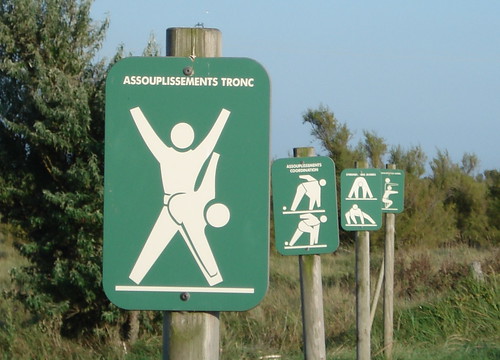 |
| photo by Toni Verdú Carbó |
Guest post by Irene Watson
"I'd like to write, but I just don't have any time."
How often have we heard that, or even said it ourselves? The truth is that writing is extremely time-consuming. Beyond just getting words down on paper, we have to revise and polish them. The time and work involved can seem so overwhelming that we never get started writing a book.
But let's face some hard facts. First of all, most of us don't have a lot of time. Secondly, not having "enough" time is completely a myth. We all have enough time to write a book. It's not so much about time as it is about discipline, and discipline doesn't mean chaining yourself to the computer seven nights a week. It means seizing opportunities when they present themselves.
First of all, determine how much time you spend doing things that don't really matter in terms of the big picture? I'm not talking about things you have to do like dishes, or working at your job, or taking care of your children? I'm talking about things like watching TV. At the end of your life, do you want to say I've seen every episode of "Friends" or "CSI" three times, or that I wrote a book? Okay, granted, some TV shows are great, but how about when they are in rerun-do you watch them anyway? Or even if you want to watch your TV shows, do you really need to watch the commercials? Every hour of TV has about fifteen minutes of commercials. Use those fifteen minutes wisely and you can write a book in a year.
Writing does not require a disciplined schedule. It doesn't require the latest, finest computer on the planet. It doesn't require a fancy pen. It just requires a few minutes of thought here and there, and then later, tying those thoughts together.
Get a pen or pencil and some paper, or a laptop-whatever is comfortable for you. Go ahead and sit down in front of the TV, and when the commercial comes on, write.
If a big piece of paper or a blank computer screen is intimidating to you, use a smaller piece of paper. If it has to be a little 2 x 2" sticky note because that's as much space as you think you can fill, go ahead and use that.
The point is to break big things down into small things. Rather than chain yourself to a desk for three hours, give yourself three-minute writing spurts. Challenge yourself not to fill several pages, but just a small piece of paper. If you're using the computer, it's great if you can turn on the word count so you can watch it increase. Write 100 words. Then 500, or 1,000. Each evening, try to break the previous day's record. Make it into a game.
But you want to write a full book. I know, you're thinking, "I'll never get there at that pace."
Let's say a typical novel-200 to 300 pages-runs around 100,000 words. If you write 1,000 words a night, you'll be done in 100 days. If you only write 500 words a night, you'll be done in 200 days. Let's say you take off weekends. That's still 2,500 words a week, which is 40 weeks to 100,000 words-in less than a year, you'll have a rough draft for your novel. If you spend the next entire year revising it, you'll have a novel written in two years. Is two years really that long? Remember two years back? Look how fast that time went by. Think two years into the future-how exciting it will be to have written an entire book.
No book was ever written in a day-not one worth reading at least. Patience and determination will get the book done.
It doesn't matter if what you write is good or bad. If your goal is to write 500 words and those 500 words are badly written, at least you got them on paper. You can always fix them later. The main thing is to write them so they can be fixed. That's half or better of the struggle. Ernest Hemingway said he wrote one good page for every one hundred bad pages. Bad writing is no big deal. Only not writing is a big deal.
If you find you don't have time to watch TV, or to sit for fifteen minutes a day, use other parts of your day to write. Do you have to commute in the car? Then think about your book while you're driving. Become committed to using that time to write your book. You can buy a recording device to speak your book into and then you can later type it up. There's even software now that will type what you speak so you don't have to type it up yourself.
Do you have a lunch break at work? Go sit in your car and write during it. Do you have a job with little to do? Then use the time to write your book. Do you have a hectic job? Grab a sticky note and doodle an idea down to stick in your pocket and come back to later.
Do you have to walk the dog? Going for walks are great ways to trigger thoughts. Get a recording device to talk into while you're out walking. Or tell your dog your story-he's probably a good listener and won't give you any negative criticism.
Busy exercising at the gym? Think about your book while you're walking on the treadmill. Waiting at the doctor's office-carry a notepad to jot in while you wait.
Tired and need a nap? Then lay down and think about your book until you drift asleep-you'll be surprised how many times ideas will come to you before you fall asleep just because you let your mind rest for a minute-and wouldn't it be cool to dream about your book? If you have an idea and forget it later, don't worry about it-another, probably even better, idea will come.
Time exists all around us if we just take advantage of it. I firmly believe anyone who puts his or her mind to it can write a book. It just takes discipline-fifteen minutes a day is sufficient. Pick up that pen. The commercial is about to come on.
Irene Watson is the Managing Editor of Reader Views, where avid readers can find
reviews of recently published books as well as read interviews with authors. Her team also provides
author publicity and a variety of other services specific to writing and publishing books.


















